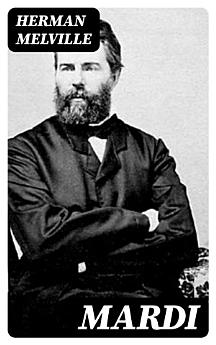Mardi
nov 2022 · DigiCat
Libro electrónico
749
Páginas
family_home
Apto
info
reportLas calificaciones y opiniones no están verificadas. Más información
Acerca de este libro electrónico
In "Mardi," Herman Melville embarks on a complex narrative voyage, blending elaborate language and philosophical musings within a richly woven tapestry of allegory. Set against the backdrop of an imaginary archipelago, the novel unfolds through the eyes of the protagonist, Taji, who grapples with existential dilemmas and the nature of reality, reflecting Melville's own struggles with identity and purpose. The literary style is notable for its intricate prose and intertextual references, resonating with themes of social critique and the quest for truth, positioning "Mardi" within the broader context of 19th-century American literature that seeks to understand both the self and society. Herman Melville, an esteemed American novelist and poet, drew inspiration from his own maritime experiences and travel encounters, which are central to the narrative structure of "Mardi." The author's previous works, such as "Moby-Dick," laid the groundwork for his exploration of existential themes and the human condition, while his interest in romanticism and transcendental philosophy informed his approach in "Mardi," revealing a deep engagement with the complexities of human nature and the critique of societal conventions. Readers who seek a profound exploration of the interplay between reality and illusion will find "Mardi" a remarkable journey. Melville's imaginative storytelling invites reflection on the larger human experience, making it a compelling read for those interested in philosophical literature and the evolution of American narrative art.
Acerca del autor
Herman Melville (1819–1891), an American novelist, short story writer, and poet of the American Renaissance period, is best known for his seafaring adventure novels and complex literary style. Born in New York City, Melville's maritime experiences would deeply influence his writing. His early novels, such as 'Typee' (1846) and 'Omoo' (1847), were popular during his time for their exotic settings and adventure narratives. However, it was Melville's ambitious venture, 'Mardi' (1849), that marked a turning point in his career. In 'Mardi', Melville deviated from the linear narrative of his previous works, plunging into a richly symbolic and philosophical quest narrative, which bewildered his audience, who expected another travelogue. Though 'Mardi' garnered less commercial success, it displayed Melville's evolving literary style, replete with allegorical significance and deeper social commentary, a precursor to his magnum opus, 'Moby-Dick' (1851). Beyond his narrative prowess, Melville's works are distinguished by their profound exploration of good and evil, fate and free will, and the metaphysical realms, intertwined with his keen insights on the human condition, drawn from his own vast experiences at sea. Despite his lack of renown in his lifetime, Melville's posthumous recognition cements him as a towering figure in American literature, whose works continue to be studied for their narrative complexity and existential depth.
Califica este libro electrónico
Cuéntanos lo que piensas.
Información de lectura
Smartphones y tablets
Instala la app de Google Play Libros para Android y iPad/iPhone. Como se sincroniza de manera automática con tu cuenta, te permite leer en línea o sin conexión en cualquier lugar.
Laptops y computadoras
Para escuchar audiolibros adquiridos en Google Play, usa el navegador web de tu computadora.
Lectores electrónicos y otros dispositivos
Para leer en dispositivos de tinta electrónica, como los lectores de libros electrónicos Kobo, deberás descargar un archivo y transferirlo a tu dispositivo. Sigue las instrucciones detalladas que aparecen en el Centro de ayuda para transferir los archivos a lectores de libros electrónicos compatibles.







